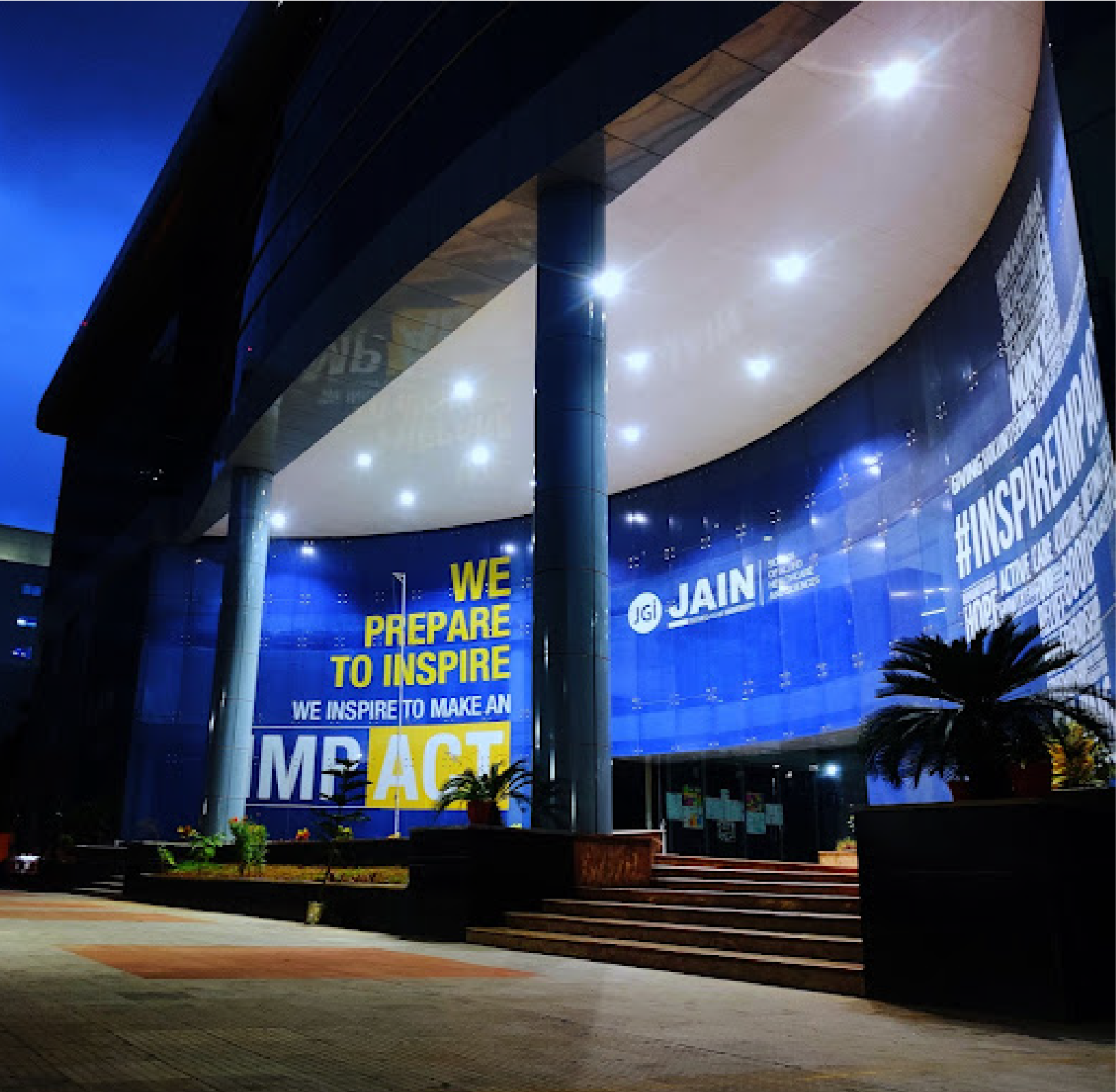Eligibility for M.Sc Clinical Embryology & Assisted Reproductive Technology:
The Clinical Embryology and ART course eligibility criteria is meticulously designed, attracting candidates with a background in life sciences, ensuring a cohort with a strong foundation in biological sciences. The eligibility for M.Sc Clinical Embryology and Assisted Reproductive Technology is a minimum 60% in BSc Biomedical Sciences/ Molecular Biology/ Biotechnology/
Microbiology/ Biochemistry/ Physiology/ Genetics/ Molecular Medicine/ Chemistry/
BPharm/ MBBS/ BMLT/ BDS or related science, and a minimum 60% in 10+2.
Contact us:
Phone Number: 9606978661, 6366828477
Email : sahs@jainuniversity.ac.in
Curriculum Structure:
The MSc Clinical Embryology and Assisted Reproductive Technology syllabus is carefully crafted to cover the latest developments in assisted reproductive technologies, including in vitro fertilisation (IVF), intracytoplasmic sperm injection (ICSI), and cryopreservation techniques
| Semester |
Name of the subject
|
| Semester 1
|
- Molecular Cell Biology
- Reproductive Anatomy and Embryogenesis
- Human Physiology
- Stem Cell Biology
- Lab Course – I
- PCL -1 (Fundamentals of Innovation and Venture Development in Entrepreneurship
-1)
|
| Semester 2
|
- Medical Microbiology and Immunology
- Infertility Aetiology and Workup
- Ethics and Regulation in ART
- Assisted Reproductive Technology-Basic
- Lab Course – II PCL -1 (Fundamentals of Innovation and Venture Development in Entrepreneurship
-1)
|
| Semester 3
|
- Assisted reproductive technology-advanced
- Clinical Embryology-Embryo Development
- Cytogenetics & Cell
- Tissue Banking and Cryopreservation.
- Lab course - III
- Mini Project
- PCL -3 (Fundamentals of Innovation and Venture Development in Entrepreneurship -3)
|
| Semester 4
|
- Good Laboratory Techniques and recent advances; Preimplantation
- Genetics & Artificial Intelligence
- Project Work/Internship - PCL-4 (Fundamentals of Innovation and Venture Development in Entrepreneurship -4)
- PCL-4 (Fundamentals of Innovation and Venture Development in Entrepreneurship)
|
Studying M.Sc Clinical Embryology & Assisted Reproductive Technology in Bangalore:
- Opting for M.Sc Clinical Embryology & Assisted Reproductive Technology (ART) in Bangalore holds paramount importance for those aspiring to delve into the dynamic and cutting-edge field of clinical embryology. Bangalore, a thriving educational hub, is home to several Top colleges for MSc Clinical Embryology and ART, including JAIN (Deemed-to-be University) providing students with unparalleled opportunities for academic excellence and practical exposure.
- Graduates of MSc Clinical Embryology and Assisted Reproductive Technology programs in Bangalore emerge as well-rounded professionals, ready to contribute to advancements in reproductive health. Choosing to pursue MSc Clinical Embryology & Assisted Reproductive Technology in Bangalore is a strategic investment in a transformative education that prepares individuals for fulfilling careers in this specialised and evolving field.
After completing an M.Sc Clinical Embryology and Assisted Reproductive Technology (ART), there are several career enhancement programs and options you can consider to further advance your knowledge and skills. Here are some potential avenues:
Clinical Embryologist Certification:
Many countries have certification programs for clinical embryologists. Organisations such as the American Board of Bioanalysis (ABB) and the European Society of Human Reproduction and Embryology (ESHRE) offer certification exams for clinical embryologists.
Advanced Training in ART Techniques:
Stay updated with the latest techniques and technologies in ART by attending workshops and training programs. Many institutions and organisations offer specialised courses in advanced ART procedures, such as advanced cryopreservation techniques, preimplantation genetic testing, and advanced embryo selection methods.
Professional Memberships and Conferences:
Join professional organisations related to reproductive medicine, such as ESHRE, the American Society for Reproductive Medicine (ASRM), or other regional societies. Attend conferences and network with professionals in the field.
Career Progression after pursuing M.Sc Clinical Embryology and assisted reproductive technology:
| Duration |
Roles and responsibilities
| Salary |
| 0-3 years
|
Junior Embryologists or Research Assistants.
|
3 - 5 lakhs per annum
|
| 3-5 years
|
Senior Embryologist or Clinical Embryologist.
|
5 to 8 lakhs per annum
|
| 5-10 years
|
Laboratory Manager or Senior Clinical Embryologist.
|
8 to 12 lakhs INR per annum.
|
| 10 years and beyond
|
Director of Assisted Reproductive Technology or Head of Fertility Center.
|
Potential to exceed 12 lakhs INR per annum
|
Please Note:These figures are approximate and may vary based on several factors, including the individual's geographic location, the demand for clinical psychology services in that area, and the specific industry or sector of employment.


